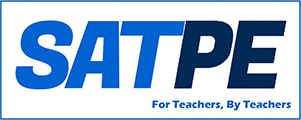Elinor Steel, Central EUPEA Central Europe Representative
 “There were lots of questions asked about the different approaches taken across Europe and hopefully these presentations will have given the Lithuanian teachers lots of different approaches to consider for their own context.”
“There were lots of questions asked about the different approaches taken across Europe and hopefully these presentations will have given the Lithuanian teachers lots of different approaches to consider for their own context.”
As the EUPEA Central Europe Rep I travelled to Vilnius, Lithuania, in early May to take part in the EUPEA Board Meeting. It’s fair to say having to endure the lovely warm weather was a hardship however the meeting, hosted by the Lithuanian Association of Physical Education Teachers (LKKMA) was very rewarding. At the Board Meeting we had general updates from each of the EUPEA regions and we discussed the progress of working groups on topics such as the Erasmus+ projects and the AIESEP conference in Edinburgh this summer. EUPEA are currently working on EU-Erasmus+ projects such as IMPACT which is looking at the role of physical activity in motivating disengaged young people, EuPEO (European Physical Education Observatory) which is examining systems in place to monitor the health benefits and related quality assurance of PEPAS and European School Sports Day which had 29 countries, 7000 events and 2 million participants in 2017 [see www.eupea.com for more details of Erasmus+ projects].
The second day was the LKKMA conference “Physical Education in Lithuania and Europe: A Glance into the future” where all EUPEA members had been invited to share their perspectives of physical education in their country. It was a unique experience to speak about our curriculum to a room of 100 delegates who were having my every word translated!
It was very informative to listen to the other EUPEA Board Members present the variety of approaches taken in the delivery of Physical Education and to hear about the wide range of curricula across Europe. Some countries focus more on physical literacy (Luxembourg and Portugal) and others, (France and Hungary), delivering 3-4 hours of PE in primary school. Interestingly some countries have fitness embedded within general activity and other take a very different approach and focus on fitness testing, measurement and reporting within Physical Education. Some curricula, such as in Finland, focuses on health, social and psychological capacities of PE whereas other countries, such as Portugal deliver using areas such as ‘skills and manipulation’ and ‘rhythmic and expression activities’ in the primary setting. There were lots of questions asked about the different approaches taken across Europe and hopefully these presentations will have given the Lithuanian teachers lots of different approaches to consider for their own context.
The next EUPEA Forum meeting will take place in Zeist, Netherlands in November 2018 and the focus will be on Advocacy & Physical Education. I hope I will be able to share lots of great ideas from across Europe on how we can continue to ensure Physical Education is at the very heart of what we do.
